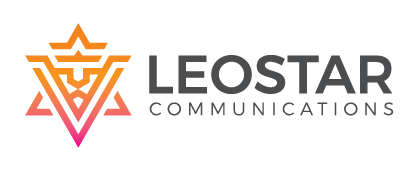5 Best Sales Automation Tools Every Sales Team Needs to Use
As you know sales is a dynamic field that is always changing. Competition is intense and customers are constantly bombarded with information so successfully sealing deals requires a strategic, data-driven approach. This is where the significance of sales automation shines through.
Software programs that perform repetitive duties for you in the sales process are called sales automation tools. The salesperson can focus on their primary tasks such as nurturing relationships and closing deals, thanks to these sales automation platforms.
In this blog post, firstly we delve into the essential benefits of using these sales automation tools and then we will discuss the top 5 sales automation tools in this blog, that every sales team should know.
Why Use Sales Automation Tools?
The advantages of incorporating sales automation into your team’s workflow are numerous. Here are just a few:
- Increased Sales Productivity: Sales automation takes care of repetitive tasks like data entry, email follow-ups, and scheduling meetings. This frees up valuable time and boosts the productivity of your sales team so that they can focus on high-value activities like lead generation and nurturing.
- Improved Efficiency: Automation streamlines the sales process, ensuring a smooth flow from lead generation to deal closure. This can significantly reduce the overall sales cycle and increase the number of deals closed.
- Enhanced Data-Driven Decision Making: Sales automation tools provide valuable insights into customer behavior and sales performance. This data can be used to identify trends, improve targeting, and make more informed decisions about sales strategies.
- Better Communication and Collaboration: Many sales automation tools offer features that facilitate communication and collaboration within sales teams and across departments. This ensures everyone is on the same page and working towards the same sales goals.
5 Best Sales Automation Tools and Software
Let’s explore the world of sales automation software in more depth. With a number of sales automation tools available, selecting the right ones for your team can be challenging. Fear not, we have compiled a list of the top 5 tools that every sales team should carefully consider.
1. Customer Relationship Management (CRM) Software
The CRM software serves as the cornerstone of a successful sales automation strategy. Acting as a central hub for all customer data, including contact details, interaction history, and deal progress, this system provides your team with a unified view of:
- Track leads and sales opportunities: A CRM helps you manage leads from initial contact to conversion. You can track their interactions with your website, emails, and social media, allowing you to prioritize leads and personalize your outreach.
- Improve communication and collaboration: With all customer information in one place, your team can collaborate more effectively. Sales reps can easily access notes and updates from previous interactions, ensuring a smooth and consistent customer experience.
- Generate reports and analytics: CRMs provide valuable insights into your sales performance. You can track metrics like lead conversion rates, sales cycle length, and win/loss ratios. This data helps you identify areas for improvement and optimize your sales strategy.
Popular CRM options include:
- Salesforce Sales Cloud
- Zoho CRM
- HubSpot CRM
- Freshsales
- Pipedrive
2. Email Automation Tools
Effective follow-up with leads and prospects is essential for deal closing. Yet, manually creating and sending individual emails can be tedious and ineffective. That’s where email automation tools prove valuable, helping you to:
- Create personalized email sequences: Design automated email drip campaigns that nurture leads and keep your company top-of-mind. You can personalize these emails with the recipient’s name, company, and interests.
- Schedule follow-up emails: Ensure timely follow-up with leads and prospects by scheduling automated emails at specific intervals.
- Track email engagement: See how your emails are performing with detailed analytics. Track open rates, click-through rates, and replies to measure the effectiveness of your email campaigns.
Popular sales email automation tools include:
- HubSpot Sales Hub
- Mailchimp
- ActiveCampaign
- Constant Contact
- Pardot
3. Sales Sequencing Tools
Taking email automation to the next level, sales sequencing tools automate your complete sales outreach process. These tools enable you to craft mini-channel sequences incorporating social media messages, emails, phone calls, and even SMS texts. Here’s how they can enhance your sales team’s performance:
- Increase sales engagement: By using a combination of channels, you’re more likely to capture your prospect’s attention and keep them engaged with your message.
- Improve sales efficiency: Free up your repetitive tasks like crafting individual messages and scheduling outreach.
- Personalize the experience: These tools often allow you to personalize the messaging based on the recipient’s behavior and interests.
Popular sales sequencing tools include:
- Outreach.io
- SalesLoft
- Yesware
- Chorus
- Groove
4. Sales Prospecting Tools
Identifying quality leads is a crucial aspect of daily sales activities. Sales prospecting tools assist in pinpointing potential customers who align well with your products or service offerings. These tools provide functionalities such as:
- Lead generation: Many tools allow you to search for leads based on specific criteria, such as industry, company size, and job title.
- Data enrichment: Enrich your existing sales leads with additional information such as company news, social media profiles, and contact details.
- Lead scoring: Score your leads based on their level of interest and potential fit, allowing you to prioritize your outreach efforts.
Popular sales prospecting tools include:
- LinkedIn Sales Navigator
- ZoomInfo
- LeadGenius
- Salesify
- Hunter.io
5. Sales Analytics and Reporting Tools
In the sales arena, data holds significant importance. Sales analytics and reporting tools play a crucial role in monitoring your team’s performance and highlighting areas for improvement. These tools empower you to:
- Track key performance indicators (KPIs): Monitor metrics such as lead conversion rates, sales cycle length, and average deal size.
- Visualize data: Turn complex data sets into easy-to-understand reports and dashboards to gain valuable insights.
- Identify trends: Analyze sales data over time to identify trends and patterns. This allows you to predict future performance and make data-driven decisions.
- Improve sales forecasting: Use historical data to create more accurate sales forecasts, which helps you plan your resources and budget more effectively.
Popular sales analytics and reporting tools include:
- Salesforce Einstein Analytics
- Zoho Analytics
- HubSpot Analytics
- InsightSquared
- Domo
Choosing the Best Sales Automation Software and Tools
When faced with the different sales automation tools, selecting the perfect one for your team can seem like a daunting task. Here are some key points to keep in mind:
Your Team’s Requirement: Assess what your sales team specifically needs. Identify the tasks that currently consume the most time and pinpoint which areas would benefit most from automation workflows.
Your Budget: Sales automation tools come at various price points, ranging from free options to higher-end solutions. It’s essential to define your budget and opt for tools that align with your financial parameters.
User-Friendly Interface: Prioritize tools that are intuitive and easy for your team to adopt and utilize. A complicated and unwieldy sales automation system may lead to frustration and reduced usage.
Future-Ready Scalability: Look towards the future growth of your business, when choosing the automation feature, especially making it easier for salespersons, improving your sales, and handling more deal closeups.
The Bottom Line
In today’s competitive market, sales automation has shifted from a luxury to a vital component for any successful sales team. By integrating appropriate tools, you can simplify your sales process, enhance efficiency, and seal more deals successfully.
Apart from the previously highlighted tools, there are numerous other effective sales and marketing automation solutions accessible. The crucial step is to pinpoint the tools that will make the most substantial impact on your unique sales workflows. Investing in sales automation can provide your team with the competitive edge essential for achieving victory.
Are you interested in delving deeper into a realm of powerful sales automation and discovering how it can boost your sales task and business?
Reach out to LeoStar today to connect with automation sales professionals and deepen your understanding of how it can boost your sales operations.






